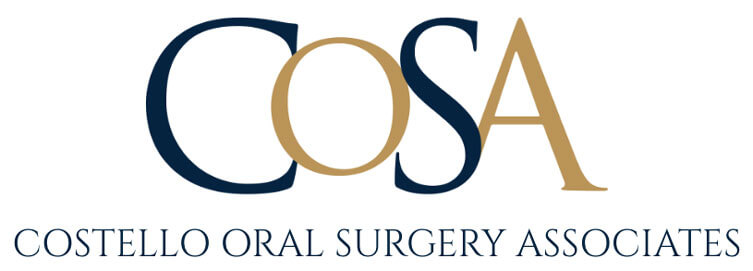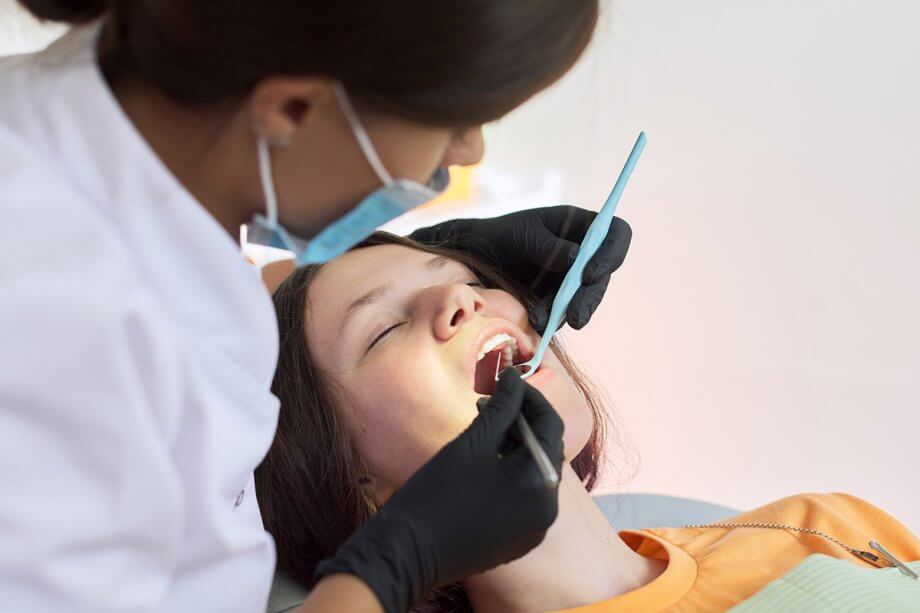Sedation dentistry is incredibly effective at helping nervous, anxious, or fearful patients relax during dental treatment or oral surgery. There are a variety of anesthesia and sedation options that you can discuss with your oral surgeon before your surgery day arrives. Here’s what to know about sedation and anesthesia for oral surgery.
Nitrous Oxide Sedation: How it is Used in Oral Surgeries
Nitrous oxide is commonly known as laughing gas. It has been used in dentistry for hundreds of years. Nitrous oxide is a mixture of nitrogen and oxygen inhaled through a mask placed over your nose. It is fast acting, and its effects wear off almost as soon as the mask is removed. Nitrous oxide will create a relaxed, euphoric feeling in patients. Some may experience a tingling sensation in the arms and legs.
Nitrous oxide is used in conjunction with local anesthesia to ensure that you feel no pain during your surgery and that you are relaxed during your surgery. Nitrous oxide combined with local anesthesia is often used for dental implant surgeries or wisdom teeth extractions.
General Anesthesia-In Patient Oral Surgery Procedures
Patients who are highly fearful or anxious about their oral surgery or those with special needs may be good candidates for general anesthesia administered in your oral surgeon’s office. General anesthesia is delivered via an I.V.
General anesthesia produces a sleep-like state. You are not likely to remember your procedure. If you have in-office I.V. anesthesia, you will receive supplemental oxygen, and your vital signs will be continuously monitored during your surgery. I.V. sedation is offered for a variety of oral surgeries, including but not limited to minor bone grafting procedures, impacted canine surgery, and some in-office treatments for facial trauma.
If you select I.V. sedation, note that you will not be able to drive yourself home from your surgery. You should also not operate any heavy machinery for 24 hours.
General Anesthesia-Hospital Surgeries
Jaw surgeries, including distraction osteogenesis, and cosmetic surgeries, including chin implants, must be conducted in a hospital or a surgical center. You will receive general anesthesia through an I.V. You will not remember your surgery. General anesthesia should always be administered in a hospital setting for patients with certain underlying conditions, including heart and lung diseases. Be sure to inform your oral surgeon of all underlying conditions and medicines you take.
Choosing the Best Sedation and Anesthesia for Your Oral Surgery
Before your surgery, your oral surgeon will explain your options for sedation and anesthesia and let you know where your surgery will be performed. All types of sedation and anesthesia have some degree of risk or lasting side effects. Your oral surgeon will inform you of the risks so that you can select the sedation or anesthesia option you are most comfortable receiving.
Schedule Your Oral Surgery in New Jersey Today
At Costello Oral Surgery Associates, Dr. Michael A. Costello, DMD, is a Board Certified Oral & Maxillofacial Surgeon who is also Board Certified in Dental Anesthesia. Costello Oral Surgery Associates provides oral surgeries, cosmetic procedures, and facial surgeries, including cleft lift and palate surgery. Costello Oral Surgery has offices in Maywood, Franklin Lakes, and Wayne, NJ. To schedule an appointment, contact our office most convenient to you.

